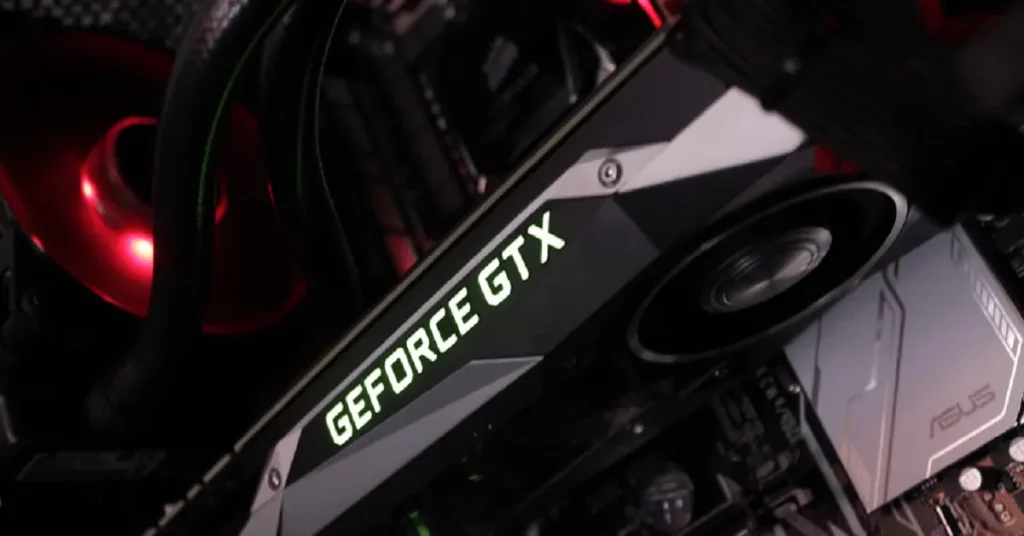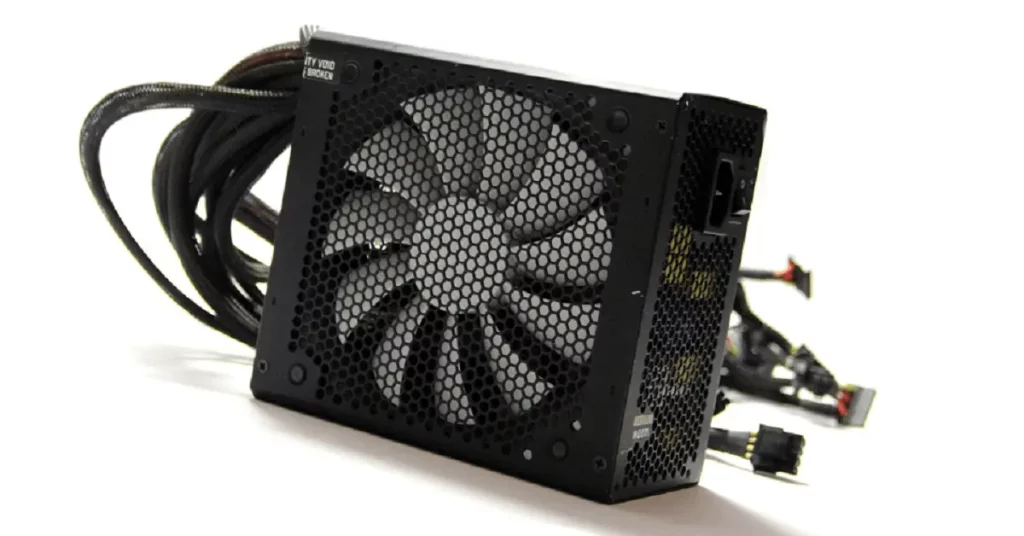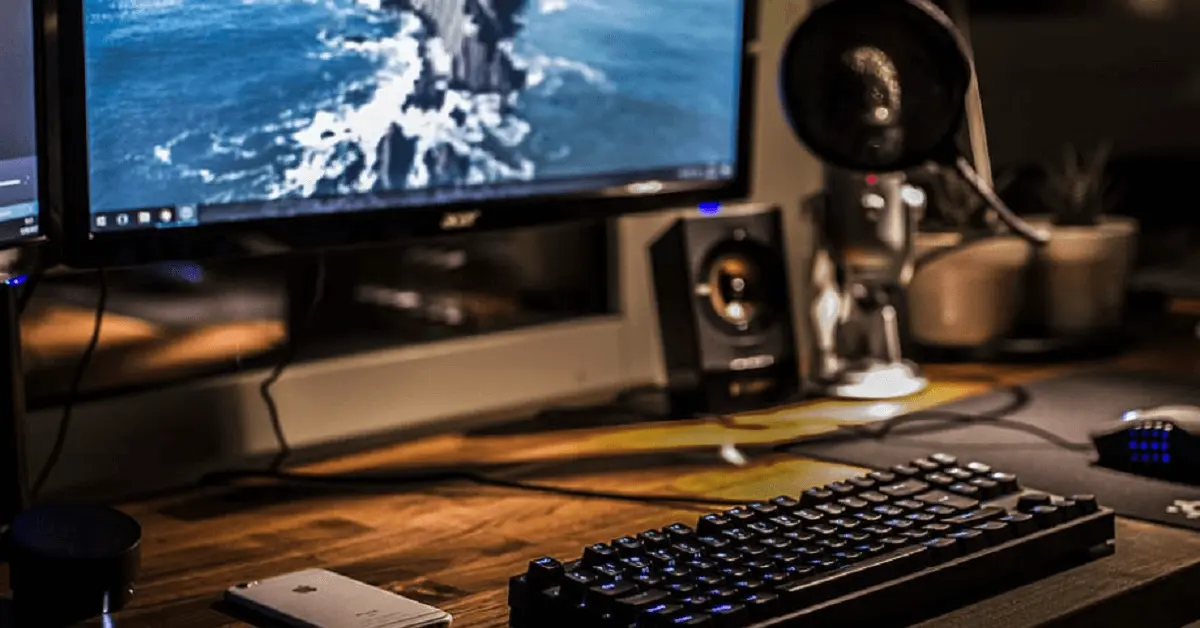10 PC Components You Need to Pick Carefully
To build a gaming computer unit for the best price, first you need to choose the models and parameters of the components. It is important to strike a balance between the characteristics of the primary and secondary components. Moreover, it is important that the assembly does not have obvious weaknesses that inhibit the entire system. So, what would such an assembly consist of? You will surely need the following components:
- CPU
In gaming PC configuration, the CPU has a really huge weight. What is the best processor to choose for your gaming computer? Prepare the money: it is very important structurally, and 2nd most expensive component of your computer after the video card. If you do not want to upgrade your computer within 3-5 years after assembly, invest in a good one.
Everybody knows about AMD Ryzen 5 3500 / 3600X processors. These have the best price to quality ratio. Intel fans are more likely to choose i5-10600K or i7-11700K. And to save even more on this component when building a powerful gaming computer, get yourself something oldschool, like Ryzen 5 2600 or i5-10400. Such a CPU will not will not be a liability (probably). Anyways, the recommended number of processor cores is 8, clock frequency starting at 2,9 GHz for Intel, or 3,6 GHz for AMD.
- Motherboard
All the components of your system are dotted around the motherboard. This is where most of the compatibility problems start brewing. Not all motherboards can support the selected processor, RAM (type and frequency), SSD form factor and other stuff.
What motherboard to buy for a gaming computer? Choose according to the socket of the selected processor. Pay attention to the availability of the necessary slots and interfaces. The affordable GIGABYTE H510M H motherboard with an M.2 slot for high-speed NVMe SSDs and support for 3200 MHz RAM looks pretty good. Some motherboards also have Wi-Fi and Bluetooth onboard. Judging by how often they are found on the motherboards, it seems that these are exclusive technologies for a select few.
- Graphics card
Importance of a graphics card for a gaming PC can not be overestimated. It is responsible for the FPS in games. Now the prices of video cards came to their senses, the advice is back the one you’d always get from the pros: always chase the best video card you can afford. Ideally from the latest NVIDIA/AMD lineup. But there is a bad egg in any lineup, and even among the 3000s there may be some weird options like the RTX 3050. So, be careful.
Gamer’s wisdom tells you: anything that doesn’t give a FPS is unimportant. The better the GPU, the more FPS (frames per second) you get. Additionally, you’ll be able to crank the graphics to the max without a drop in this key rate. Besides, you would be able to pump up the resolution so that you could play games on a really good screen. And if you want to buy a cheap computer for games, alas, you will not see good gaming performance.

The optimal configuration of the gaming computer could be built on the basis of the GTX 1660 Super, GTX 1660 Ti, or GTX 20 series, and they cost above $250 in New York (in case you can land a discount, otherwise – up to $400). The recommended amount of video memory – 6GB+, memory type – GDDR5 / GDDR6X, and the resolution – 192 bit / 256 bit. Haven’t you always dreamed of 220 FPS in Dota?
The best configurations will be built on RTX 30 type of graphics cards (RTX 3070 Ti, for example, looks cool). FPS are through the roof.
- RAM
The amount of RAM determines how fast the PC processes the temporary intermediate data. To put it in a nutshell: the bigger the RAM, the more processes can fit in it. And it’s also important for gaming experience. The system requirements for modern games often specify a recommended size of 16GB. Thus, gamers troll those who have not yet moved on from 8GB.
What kind of RAM specs do you need for gaming? 16GB RAM is love, 16GB RAM is life. But that’s only the must-have right now. Give it a year – the game developers will demand 32GB. Then 64GB. And then they will tell you to throw everything away, because there’s a new DDR in town, and it will turn out that everything has long been optimized for this new type.
The higher the frequency of RAM, the faster it is. It is desirable to consider 3200+ MHz for buying. The new DDR5s work at 4800 MHz easily (at least they don’t melt).
- Drive
An important one in terms of comfort. Have you saved up for a hard drive yet? Relax, it’s one of the cheapest components right now.
There are two types of drives on the market: HDD and solid-state (SSD). If your budget allows it, go for a maximum-capacity SSD. They can read and write data quickly. This means that Windows and games will load faster.
Recommended capacity drive is 1TB. New games weigh more than mammoths. Financial limitations may demand a compromise: SSD 256 GB / 512 GB + HDD 2 TB. This combination will land a jab on the speed, but it will be possible to download a whole library of various games. Another option is to buy an SSD 512 GB right now, then add another SSD 512 GB or more at some moment later.
- Power supply
For some folks, a new MCU blockbuster is a power supply, but for a PC, it’s the component that directs power from the outlet to the motherboard and other parts of the system unit. It also saves your PC and your credit history from power surges and fluctuations.
When considering which computer to buy for home use and gaming, you need to learn by heart and then follow one golden rule: never skimp on a power supply and always look for a model with ‘80 PLUS Bronze / Silver / Gold’ certification. An example of a good model is the Corsair CX650M, with plenty of power to spare for the future.

As for the required PSU power, it’s easy to calculate with online calculators. Top graphics cards now need PSUs of 600W or more.
- Monitor
Selecting the monitor for gaming computer, pay attention to:
- Size. For gaming optimal diagonal 24-32 inches. You will be sitting 2-4 feet away from the screen with an excellent view of what is going on, which is important in competitive games. For wireless gaming, a 47-49″ can also come in handy.
- Resolution. This parameter should be selected based on the diagonal and the power of your PC. 1080p for 24-27 inches is a common and not very expensive solution, suitable for most assemblies.
If you have a powerful gaming PC with a graphics card level RTX 2060 Super, you can afford a higher and sharper 1440p resolution.
The 4K options will cost more.
- Update rate. Yet another key parameter which distinguishes a standard monitor from a gaming one. Look first of all for models with 120 Hz, 144 Hz, 165 Hz and 170 Hz. These are the optimal solutions on the background of 240 Hz and 360 Hz, as you will hardly notice the difference between 144Hz and 280Hz, except in eSports. It is better to pay extra for a bigger resolution than for a gigantic frequency.
- Aspect Ratio. For gaming, use one monitor with a 16:9 aspect ratio. Ultra-wide 21:9 and 32:9 can be considered, but their support in games is limited. They also perform worse sometimes, especially in multiplayer games where there is no wide viewing angle.
- Pixel response time. The manufacturer’s stated response time should be treated with skepticism. For example, the value of 1 ms may work only in certain conditions, and, without professional tests, it is impossible to determine this. So just focus on the expert reviews and tests, ignoring the models with response time above 15 ms.
- FreeSync and G-Sync technologies. Nvidia and AMD have developed technologies to eliminate frame gaps. FreeSync does not need a special chip and does not increase the price of the device, and in general has little effect on the gaming experience, so it is better to look out for support for FreeSync Premium / Premium Pro.
- Color Range. When choosing a model, make sure it supports a wide range of colors, up to 100% in sRGB, Adobe RGB, and DCI-P3 color spaces. Also, models that support color depth 10 bit or at least 8 bit + FRC instead of the standard 6 bit + FRC look good.
- Flicker-Free, no PWM. Pulse width modulation (high frequency flicker) can seriously damage your eyes during long hours of uninterrupted gaming.
- Mouse and keyboard
- Choosing a gaming mouse, pay attention to the optical sensor instead of laser (more reactive and not laggy), ergonomic shape, DPI (speed of movement of the cursor), backlighting, customization, macro recording and programming of keys.
- When choosing a gaming keyboard, pay attention to the Key Rollover indicator (it shows how many keystrokes the keyboard can hold simultaneously), the type of switches (it is better to choose a mechanical one with 10 times longer lifetime than membrane ones), build quality, macros and key programming, RGB lighting.
- Computer case
What kind of gaming computer will trigger your friends’ envy? The case could be massive, in a gaming design, with a transparent lid so that everyone could see its insides.
The choice is mainly focused on aesthetics. Life becomes easier when you have considered comfortable cable management, efficient ventilation and leaving enough space for future upgrades.
- Cooling System
For a top gaming computer, you may need water cooling, which will provide a normal temperature mode for productive hardware. In its turn, the budget build can do with a boxed cooler. Have a look at third-party coolers with high TDP and the right socket for your CPU.
Conclusion
By following these tips-sometimes simple, sometimes more complicated-you can build a great, long-lasting, productive gaming computer. Nevertheless, even such an amazing device may sooner or later require repair. This repair may be so complicated that you will not be able to handle it with all your assembling skills.
In such a situation, you should turn to the pros in PC repair. The experts from Good Zone in Brooklyn are among the best – you can get the details on their website: goodzonerepairs.com. Other than that, now you know enough to start looking for the right parts to assemble an adequate gaming computer.



